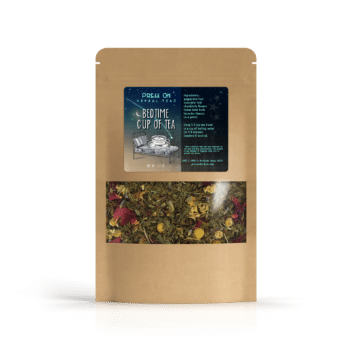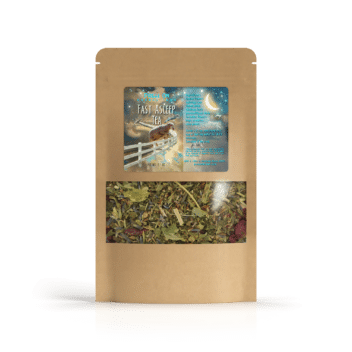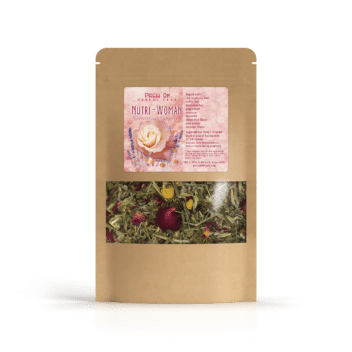Lavender Flowers in Herbal Medicine
Lavender flowers have been cherished for centuries, not just for their fragrant beauty but also for their impressive medicinal properties. Known scientifically as Lavandula angustifolia, this versatile herb plays a significant role in herbal medicine, offering a range of health benefits. In this article, we will explore the various medicinal uses of lavender flowers and how they contribute to holistic health.
Lavender has been used in herbal medicine for thousands of years. Ancient civilizations, including the Egyptians, Greeks, and Romans, utilized lavender for its therapeutic properties. Whether it was for embalming, bathing, or healing purposes, lavender has always held a special place in historical apothecaries.
The Egyptians used lavender in the mummification process, capitalizing on its preservation qualities. They believed that lavender’s aromatic properties would not only preserve the body but also provide spiritual protection in the afterlife. This practice highlighted the importance of lavender in ancient Egyptian culture, where it was considered almost sacred.
The Greeks and Romans were known to add lavender to their baths and cooking, appreciating its calming scent and flavor. In Roman society, lavender was a luxury item, often used to scent the public baths. The Greeks, on the other hand, utilized lavender in their culinary practices, infusing its flavor into various dishes, which was believed to aid digestion.
They also used lavender oil for massages to soothe aches and pains. Beyond relaxation, lavender oil was employed in ancient therapeutic practices to treat various ailments, such as headaches and muscle tension. The soothing properties of lavender made it a staple in ancient wellness routines, showcasing its versatility and timeless appeal.
During the Middle Ages, lavender was highly regarded for its protective qualities against the plague and other illnesses. People would carry lavender in bunches or sachets to ward off disease, as it was believed to purify the air and prevent infections. This era marked a significant point in lavender’s history as a medicinal herb, cementing its reputation for promoting health and well-being.
In the Renaissance period, lavender gained popularity in European apothecaries for its healing properties. It was used in a variety of concoctions, including tinctures and balms, to treat ailments ranging from headaches to insect bites. As herbal medicine advanced, lavender’s role continued to expand, influencing the development of modern herbal practices.
In more recent history, lavender has experienced a resurgence in popularity, thanks to scientific research supporting its health benefits. With the rise of alternative and holistic medicine, lavender has been rediscovered as a natural remedy for stress, anxiety, and a host of other health concerns. Today, it is widely used in aromatherapy, cosmetics, and natural medicine, demonstrating its enduring relevance and effectiveness.
Lavender is renowned for its numerous health benefits, many of which are supported by scientific research. Here, we’ll delve into some of the most prominent advantages of incorporating lavender flowers into your wellness routine.
Lavender is perhaps best known for its calming effects on the mind and body. The scent of lavender has been shown to reduce stress and anxiety levels, making it a popular choice for aromatherapy. Inhaling lavender oil or using it in a diffuser can help create a peaceful environment conducive to relaxation and mental clarity.
The calming effects of lavender are attributed to its ability to influence the limbic system, the part of the brain responsible for emotions. By promoting relaxation, lavender can help lower cortisol levels, the hormone associated with stress, leading to improved mental health and emotional balance.
In addition to aromatherapy, lavender can be used in other forms to combat stress and anxiety. For example, lavender-infused baths or massage oils can provide a soothing experience, helping to alleviate tension and promote a sense of tranquility.
Lavender flowers can also improve sleep quality. Studies have demonstrated that lavender aromatherapy can enhance sleep patterns and increase the overall quality of sleep. This is particularly beneficial for individuals struggling with insomnia or irregular sleep cycles. Using lavender essential oil on your pillow or in a bedside diffuser can promote restful sleep.
The sedative effects of lavender are believed to be linked to its interaction with neurotransmitters in the brain, such as GABA, which helps induce sleep and relaxation. By promoting a calm state of mind, lavender can help ease the transition into sleep and improve overall sleep duration and depth.
Incorporating lavender into your nighttime routine can be as simple as enjoying a cup of lavender tea before bed or using lavender-scented candles or sachets in your bedroom. These practices can help create a calming atmosphere conducive to restful sleep.
Lavender’s analgesic properties make it an effective remedy for pain relief. Whether you’re dealing with headaches, sore muscles, or joint pain, lavender oil can help alleviate discomfort. Applying diluted lavender oil topically to the affected area or using it in a warm bath can provide soothing relief.
The pain-relieving effects of lavender are thought to result from its ability to reduce inflammation and improve circulation. By promoting blood flow and relaxing tense muscles, lavender can help ease pain and discomfort associated with various conditions, such as arthritis or muscle strains.
For those experiencing chronic pain, incorporating lavender into daily self-care routines can offer significant benefits. Regular massages with lavender oil or incorporating lavender into physical therapy practices can enhance pain management and improve overall quality of life.
Lavender is also beneficial for skin health. Its antibacterial and anti-inflammatory properties make it an excellent choice for treating minor burns, cuts, and insect bites. Lavender oil can accelerate the healing process and reduce scarring. Additionally, lavender’s soothing nature makes it suitable for sensitive skin conditions like eczema and dermatitis.
The healing properties of lavender are attributed to its ability to promote cell regeneration and reduce inflammation. By calming irritated skin and preventing infections, lavender can enhance skin health and appearance, making it a valuable addition to skincare routines.
Beyond treating minor injuries, lavender can be used in various skincare products, such as lotions and creams, to maintain healthy skin. Its gentle nature makes it suitable for all skin types, providing hydration and nourishment without causing irritation.
In addition to its physical health benefits, lavender has been shown to offer emotional and cognitive advantages. By reducing stress and promoting relaxation, lavender can enhance mood and improve mental clarity. This makes it a valuable tool for managing conditions such as depression and anxiety.
Research suggests that lavender may also support cognitive function by improving focus and concentration. By calming the mind and reducing mental fatigue, lavender can enhance productivity and cognitive performance, making it a beneficial herb for both mental health and cognitive enhancement.
Incorporating lavender into daily routines, whether through aromatherapy, teas, or other methods, can provide a holistic approach to mental and emotional well-being, supporting overall health and quality of life.
The versatility of lavender extends to a wide array of medicinal uses. Here are some common ways lavender is used in herbal medicine:
Aromatherapy is one of the most popular uses of lavender. By diffusing lavender essential oil or adding it to a warm bath, you can experience its calming effects. This practice is not only relaxing but also beneficial for reducing anxiety and enhancing mood.
The use of lavender in aromatherapy can be traced back to ancient times, where it was employed to create a serene and peaceful environment. Today, lavender aromatherapy is widely used in wellness practices to promote relaxation and mental clarity, making it a staple in modern holistic medicine.
Beyond its calming effects, lavender aromatherapy can also enhance mood and emotional well-being. By inhaling lavender’s soothing scent, individuals can experience an uplifted mood and reduced feelings of stress or anxiety, leading to improved mental health and overall happiness.
Lavender can be brewed into a soothing herbal tea. This tea is not only fragrant and delicious but also provides the calming effects of lavender, making it a perfect beverage before bedtime or during stressful times.
Lavender tea is known for its relaxing properties, which can help soothe the mind and body, promoting relaxation and restful sleep. By incorporating lavender tea into daily routines, individuals can enjoy its calming benefits and support overall well-being.
In addition to its calming effects, lavender tea can also aid digestion and support immune health. The anti-inflammatory properties of lavender can help soothe digestive discomfort and promote healthy digestion, making it a valuable addition to wellness routines.
Lavender oil is often used topically to address skin issues and pain relief. Its antibacterial properties help prevent infections in minor cuts and burns, while its anti-inflammatory effects reduce swelling and redness.
The topical use of lavender oil can offer significant benefits for skin health, promoting healing and reducing the risk of infections. By applying diluted lavender oil to affected areas, individuals can experience its soothing and healing effects, supporting overall skin health.
Beyond skin health, lavender’s topical applications can also provide relief from muscle aches and joint pain. By massaging lavender oil into sore muscles or joints, individuals can experience reduced pain and improved mobility, enhancing overall physical well-being.
Lavender oil is a popular choice in massage therapy due to its calming scent and ability to relieve muscle tension. When used in massages, lavender oil can help relax muscles, reduce stress, and improve circulation.
The use of lavender oil in massage therapy can offer a holistic approach to relaxation and pain relief, promoting physical and emotional well-being. By incorporating lavender into massage routines, individuals can experience enhanced relaxation and improved overall health.
In addition to its calming effects, lavender oil can also support circulation and promote detoxification. By improving blood flow and reducing tension, lavender oil can enhance the body’s natural healing processes, supporting overall health and vitality.
Lavender flowers can be used in culinary applications, adding a unique floral note to dishes. They can be included in baked goods, salads, or even as a garnish for cocktails.
The culinary use of lavender offers a delightful way to incorporate its benefits into daily routines. By adding lavender to various dishes, individuals can enjoy its unique flavor and aroma, enhancing culinary experiences and supporting overall health.
In addition to its flavor, lavender can also offer digestive benefits when used in culinary applications. By promoting healthy digestion and reducing inflammation, lavender can support overall well-being, making it a valuable addition to culinary practices.
Adding lavender flowers to your wellness routine is easy and can be done in various ways. Here’s how you can start:
Invest in high-quality lavender essential oil for use in diffusers, baths, or direct application to the skin (diluted). Ensure the oil is pure and free from additives for the best results.
The use of lavender essential oil can offer a versatile approach to wellness, providing a range of benefits for physical and emotional health. By incorporating lavender oil into daily routines, individuals can experience its calming and healing effects, supporting overall well-being.
In addition to its calming effects, lavender essential oil can also support immune health and promote healing. By using lavender oil in various applications, individuals can enjoy its holistic benefits, enhancing overall health and vitality.
Create your own lavender-infused products, such as lotions, balms, and sachets. These can be used for personal care or as thoughtful homemade gifts.
The creation of DIY lavender products can offer a personalized approach to wellness, allowing individuals to tailor their use of lavender to their specific needs. By making lavender-infused products, individuals can enjoy its benefits in a variety of forms, enhancing overall health and well-being.
In addition to personal care, DIY lavender products can also offer a creative outlet and provide an opportunity for self-care. By engaging in the process of making lavender products, individuals can experience relaxation and enjoyment, supporting overall mental and emotional health.
Lavender flowers can be used in culinary applications, adding a unique floral note to dishes. They can be included in baked goods, salads, or even as a garnish for cocktails.
The culinary use of lavender offers a delightful way to incorporate its benefits into daily routines. By adding lavender to various dishes, individuals can enjoy its unique flavor and aroma, enhancing culinary experiences and supporting overall health.
In addition to its flavor, lavender can also offer digestive benefits when used in culinary applications. By promoting healthy digestion and reducing inflammation, lavender can support overall well-being, making it a valuable addition to culinary practices.
While lavender is generally safe for most people, it’s essential to use it responsibly. Here are some precautions to keep in mind:
- Allergic Reactions: Conduct a patch test before using lavender oil topically to ensure you don’t have an allergic reaction.
The use of lavender oil can offer significant benefits for skin health, but it’s important to ensure that it is safe for individual use. By conducting a patch test, individuals can determine if lavender oil is suitable for their skin, preventing potential allergic reactions and supporting overall health.
- Pregnancy and Breastfeeding: Consult a healthcare professional before using lavender during pregnancy or while breastfeeding.
The use of lavender during pregnancy and breastfeeding should be approached with caution, as its effects on these conditions are not fully understood. By consulting a healthcare professional, individuals can ensure that lavender use is safe and appropriate, supporting overall health and well-being.
- Children: Keep lavender oil out of reach of children, and avoid using it on infants without professional guidance.
The use of lavender oil in children should be approached with caution, as its effects on young children and infants are not fully understood. By keeping lavender oil out of reach of children and consulting a healthcare professional, individuals can ensure its safe use, supporting overall health and safety.
Lavender flowers are a versatile and powerful component of herbal medicine. From stress relief to skin health, their benefits are manifold. By incorporating lavender into your wellness routine, you can harness the healing power of nature to enhance your quality of life. Whether through aromatherapy, tea, or topical applications, lavender offers a natural and effective way to support holistic health.
Lavender’s versatility and effectiveness make it a valuable addition to modern wellness practices, providing a natural and holistic approach to health and well-being. By embracing the benefits of lavender, individuals can experience enhanced health and vitality, supporting overall quality of life and well-being.
Whether used in ancient practices or modern applications, lavender continues to offer significant benefits for physical, mental, and emotional health, making it a timeless and valuable herb in the world of natural medicine.




